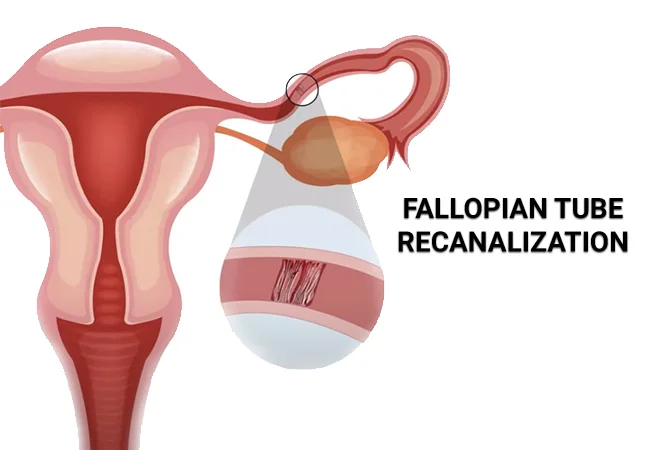Recanalization (Opening of sterilization)

Recanalization, also known as tubal reanastomosis or tubal ligation reversal, is a surgical procedure aimed at restoring fertility in women who have previously undergone sterilization. Sterilization is a permanent method of birth control where the fallopian tubes are cut, tied, or blocked to prevent pregnancy. However, some women may decide to reverse this procedure due to changes in life circumstances or the desire to have more children.
What is Recanalization?
Recanalization involves reconnecting the previously cut or blocked segments of the fallopian tubes to allow the eggs to travel from the ovaries to the uterus, thereby restoring the possibility of natural conception. This procedure is typically performed using microsurgical techniques to ensure precision and minimize damage to the surrounding tissues.
Who is a Candidate for Recanalization?
Recanalization may be an option for women who:
Have undergone tubal ligation and now wish to conceive naturally.
Are in good overall health and have no other significant fertility issues.
Have sufficient healthy fallopian tube tissue remaining after the initial sterilization procedure.
The Recanalization Procedure
The recanalization procedure at Vatsalya Hospital is performed by highly skilled surgeons who specialize in microsurgical techniques. Here’s what the procedure involves:
Preoperative Evaluation
A thorough evaluation is conducted to assess the patient’s health, fertility status, and suitability for the procedure. This may include blood tests, imaging studies, and a review of the patient’s medical history.
Surgical Procedure
The surgery is typically performed under general anesthesia. A small incision is made in the abdomen, and the surgeon uses specialized instruments to reconnect the fallopian tubes. The procedure may take several hours, depending on the complexity of the case.
Recovery
After the surgery, the patient is monitored in the hospital for a short period before being discharged. Most women can return to their normal activities within a few weeks. However, it’s advised to avoid heavy lifting and strenuous activities during the recovery period.
Postoperative Care
Follow-up appointments are scheduled to monitor the healing process and ensure the success of the procedure. The patient will also receive guidance on when it’s safe to try for pregnancy.
Success Rates and Considerations
The success rate of recanalization varies, with many women able to conceive naturally after the procedure. Factors that influence success include:
The type of sterilization initially performed.
The patient’s age and overall reproductive health.
The length of the remaining fallopian tubes after recanalization.
It’s important for patients to have realistic expectations and to discuss the potential outcomes and risks with their healthcare provider. In some cases, in vitro fertilization (IVF) may be recommended as an alternative if recanalization is not feasible or unsuccessful.
Why Choose Vatsalya Hospital for Recanalization?
At Vatsalya Hospital, Bhilwara, we are committed to providing compassionate and expert care for women seeking to restore their fertility. Our experienced surgical team utilizes advanced techniques and state-of-the-art equipment to perform recanalization with the highest standards of safety and success. We understand the emotional and physical aspects of this decision and are here to support you every step of the way.

